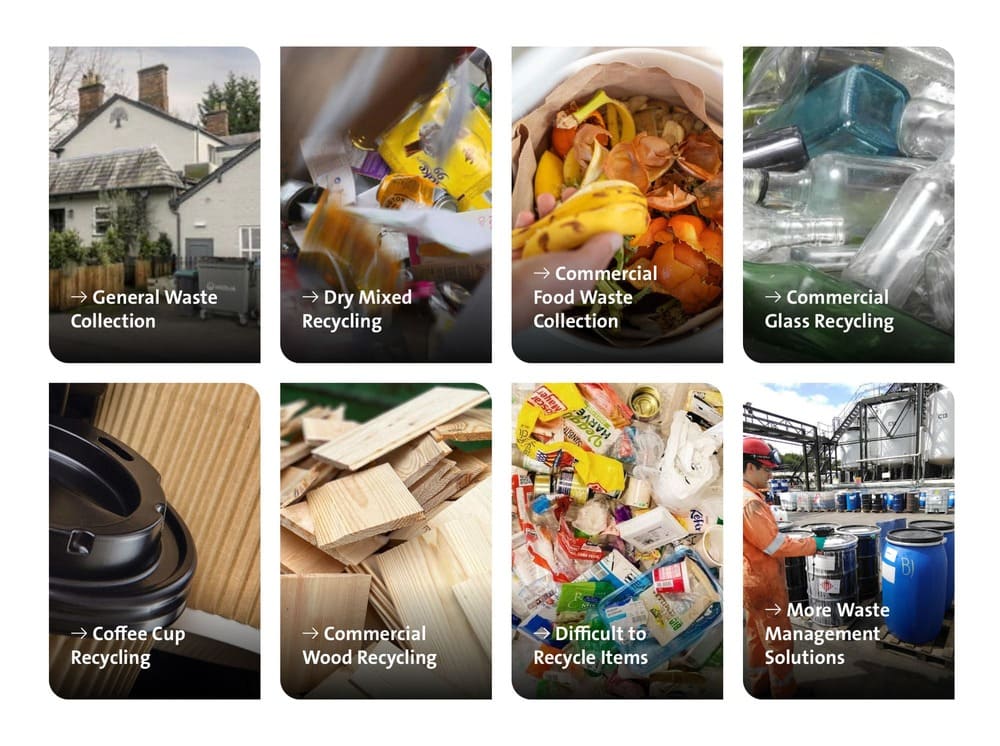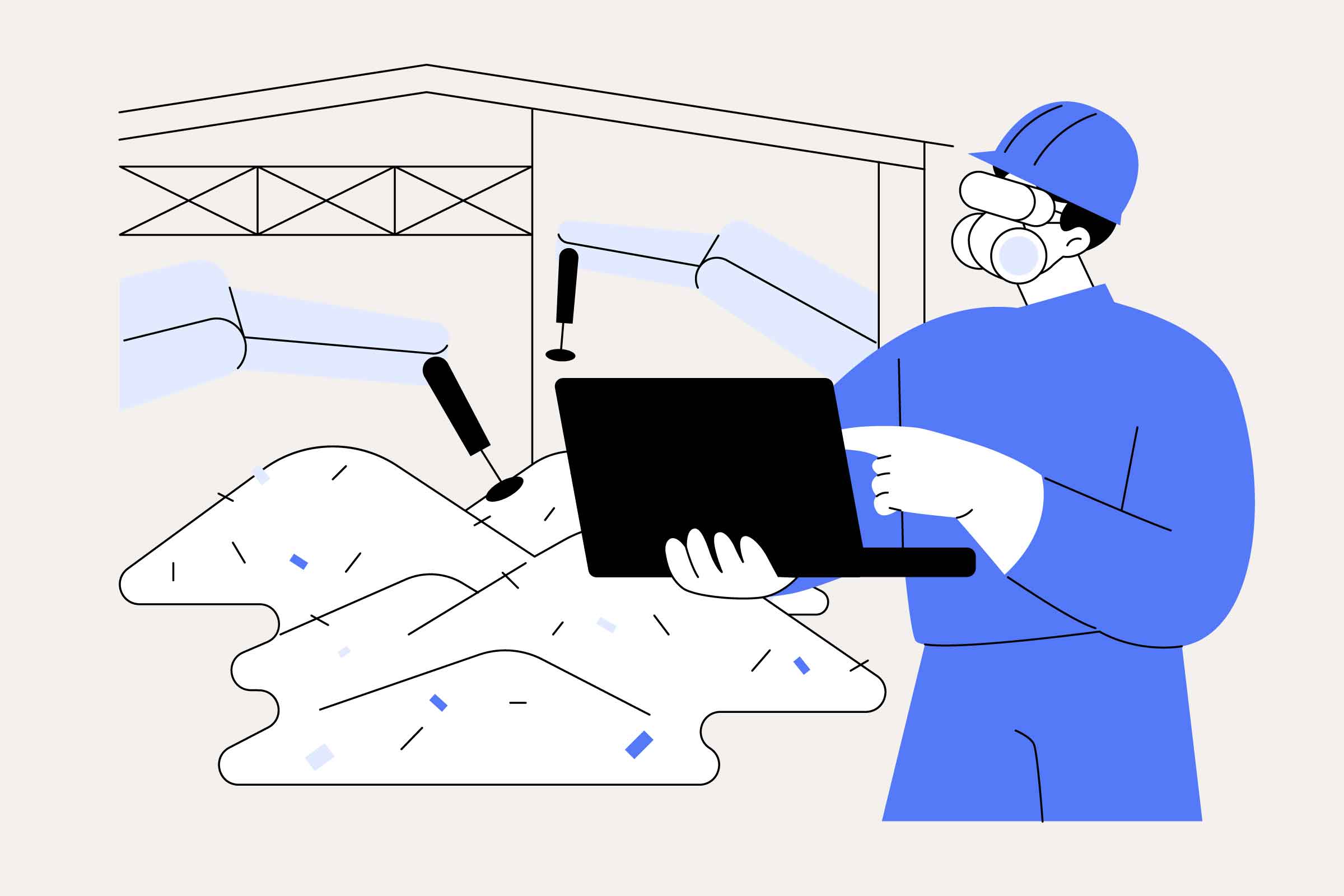Managing commercial waste effectively is not just a regulatory necessity; it’s a vital component of sustainable business practices. Veolia, a global leader in environmental solutions, offers a range of commercial waste management services tailored to various industries. Understanding their pricing structure is crucial for businesses looking to optimise costs while maintaining high standards of environmental compliance.
Understanding Veolia’s service offerings
Veolia’s commercial waste management services are comprehensive, covering a wide array of waste types and disposal methods. Their services typically include general waste collection, recycling, hazardous waste management, food waste disposal, and specialised services for specific industries such as healthcare and manufacturing.
Each of these services is priced differently, depending on factors such as the type of waste, volume, frequency of collection, and the specific requirements of the business. Understanding these elements is key to navigating Veolia’s pricing structure effectively.

Factors influencing Veolia’s pricing
Several factors influence the cost of commercial waste management services with Veolia:
- Type of waste: Different waste types incur different disposal costs. For example, hazardous waste requires specialised handling and disposal, which is typically more expensive than general waste or recyclables.
- Volume of waste: The amount of waste a business produces directly impacts the cost. Veolia offers flexible pricing based on the volume, with discounts available for larger quantities, making it important for businesses to accurately estimate their waste output.
- Collection frequency: The frequency of waste collection is another key cost driver. Businesses that require daily collection will pay more than those opting for weekly or fortnightly services.
- Location: Geographic location can affect pricing due to varying regional disposal fees, local regulations, and transport costs. Businesses in remote areas or locations with strict environmental regulations may face higher costs.
- Service level agreements (SLAs): Veolia offers customised service level agreements based on a business’s specific needs. SLAs that include additional services such as on-demand collections, waste audits, or sustainability reporting may incur higher fees but provide added value through enhanced service levels.
Veolia pricing list
| Service Type | Waste Type | Collection Frequency | Volume (per collection) | Cost per Collection (£) | Monthly Cost (£) |
|---|---|---|---|---|---|
| General Waste Collection | General Waste | Weekly | 240-litre bin | £20 | £80 |
| Recycling Collection | Mixed Recycling | Weekly | 240-litre bin | £15 | £60 |
| Hazardous Waste Collection | Hazardous Materials | Fortnightly | 120-litre container | £50 | £100 |
| Food Waste Collection | Organic Food Waste | Twice weekly | 240-litre bin | £18 | £144 |
| Clinical Waste Collection | Medical Waste | Weekly | 120-litre container | £75 | £300 |
| Paper Recycling | Paper Only | Weekly | 240-litre bin | £12 | £48 |
Notes:
- Additional Costs: There may be additional charges for services such as overage fees (if waste exceeds the agreed volume), contamination fees, or emergency pickups.
- Discounts: Discounts may apply for larger volumes or longer-term contracts.
- Regional Variations: Prices can vary based on location due to regional disposal fees and transportation costs.
- Service Customisation: Customised service agreements may affect the pricing.
Pricing structure and payment options
Veolia typically offers two types of pricing models: fixed pricing and pay-as-you-go.
- Fixed pricing: This model provides businesses with a consistent monthly or annual fee based on an agreed-upon volume of waste and collection schedule. It’s ideal for businesses with predictable waste output, offering budget stability and ease of planning.
- Pay-as-you-go: This option is more flexible, allowing businesses to pay based on the actual volume of waste collected. This model is suitable for businesses with fluctuating waste production, as it allows for cost savings when waste output is low.
Veolia also offers a variety of payment options, including direct debit, invoicing, and online payments, allowing businesses to choose the most convenient method.
Hidden costs to consider
While Veolia’s pricing is generally transparent, businesses should be aware of potential additional costs that may arise. These can include:
- Contamination fees: If recyclables are contaminated with non-recyclable materials, additional fees may apply for sorting and disposal.
- Overage charges: Exceeding the agreed waste volume can result in additional charges, making accurate waste forecasting essential.
- Late payment fees: As with many service providers, delayed payments can incur penalties, so it’s crucial to stay on top of invoicing schedules.
Maximising value with Veolia
To get the most value out of Veolia’s services, businesses should consider conducting regular waste audits to identify areas where waste production can be reduced or better managed. Additionally, businesses can work with Veolia to develop a tailored waste management plan that aligns with their sustainability goals, potentially reducing costs and improving environmental outcomes.
Veolia also offers sustainability reporting and consultancy services, which can help businesses improve their waste management practices and achieve sustainability targets. These services may come at an additional cost but can offer significant long-term savings and brand value enhancement.
Veolia pricing – Our verdict
Veolia’s commercial waste management pricing is influenced by a variety of factors, from the type and volume of waste to the frequency of collection and service location. By understanding these factors and carefully considering their waste management needs, businesses can effectively manage their costs while maintaining compliance and supporting their sustainability goals. Whether opting for fixed pricing or a more flexible pay-as-you-go model, businesses can benefit from Veolia’s expertise in managing waste efficiently and responsibly.
For more, see the Veolia website.
Veolia pricing review – FAQ
Veolia determines the cost of general waste collection based on factors such as the frequency of collection, the volume of waste, and your location. For example, a weekly collection of a 240-litre bin of general waste might cost around £20 per collection, leading to a monthly cost of £80.
Yes, Veolia offers discounts for businesses with large volumes of waste. For instance, if your business produces a significant amount of recyclable materials, Veolia might reduce the per-bin cost from £15 to £12 for a 240-litre mixed recycling bin collected weekly.
Veolia charges higher rates for hazardous waste due to the specialised handling required. For example, the collection of a 120-litre container of hazardous materials on a fortnightly basis could cost £50 per collection, resulting in a monthly expense of £100.
If Veolia collects food waste twice a week, the cost per 240-litre bin might be £18 per collection. This would total £144 per month, assuming consistent collection and volume.
Yes, Veolia may impose overage charges if waste bins are overfilled. These fees can vary but might be an additional £5 to £10 per collection, depending on the extent of the overfill and the type of waste involved.
Veolia’s pricing can vary based on your location due to differing regional disposal fees and transportation costs. For example, a business in a remote area might pay 10-15% more per collection compared to a business in a major city.
Yes, Veolia can create a customised waste management plan that meets specific business needs, which can influence pricing. For instance, adding sustainability reporting or on-demand collections might increase the monthly fee by £50 to £100, depending on the services included.
Veolia typically charges less for recycling services than for general waste collection. For example, a 240-litre bin of mixed recycling collected weekly might cost £15 per collection, whereas the same volume of general waste might cost £20.
Yes, Veolia offers a pay-as-you-go pricing model where you pay based on the actual volume of waste collected. For example, if your business produces varying amounts of waste, you might pay £20 for one collection and £40 for another, depending on the volume and type of waste.
If a business is late on a payment, Veolia may charge a late payment fee. This fee could be around £25 or a percentage of the outstanding amount, depending on the terms of the service agreement.

